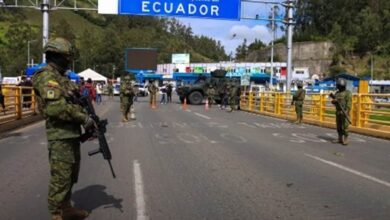The web goes native


Latin American financial systems show problems of segmentation that marginalize their services to large economic and social, especially small and medium-sized enterprises and low-income individuals, which is an obstacle to social mobility that could fight poverty and inequality, according to the study made by the Economic Commission for Latin America and the Caribbean (CELAC).
That’s why Mozilla, a company dedicated to creating free software, seeks to empower people with the knowledge it requires to read, write, and participate in the web and that is defined as “web literacy.”
To achieve this literacy, Mozilla Nativo was created, an initiative that involves the incorporation of indigenous languages IGNORE INTO the digital world. In particular, it makes it easier for indigenous language speakers to make better use of the web.
“The biggest challenge in Latin America to have greater financial inclusion is lack of education or financial literacy. Some people do not know what options there are, and even if they do, they have no idea how they could help. From Mozilla we see a problem comparable to web literacy, “said Mitchell Baker, CEO of the Mozilla Foundation.
The project is made up of a large community of users, translators, developers, activists and other stakeholders who are currently working in countries throughout the region.
According to the Mozilla director, there are currently documented about 50 projects that are in the process of being completed in native languages of Latin America. Teams from Peru, Colombia, Chile, Argentina, Mexico, Guatemala, Bolivia, Paraguay, Ecuador and El Salvador are involved.
“Just last April, thanks to the hard work of its members, we ended up with two of these projects: one in Paraguay (with the Guaraní language) and the other in Guatemala (with the Maya Kaqchikel language),” said Mitchell Baker .
Internet access in Latin America fell by 52% and increased the number of people able to access the web for things like opening a bank account, paying bills, or buying online.
“We view technology, and particularly access to financial resources over the Internet, as a major driver of financial inclusion in the region. Access, of course, is only the first step. People also have to be educated about how to use the Internet, and hence the importance of web literacy, “said Baker.





